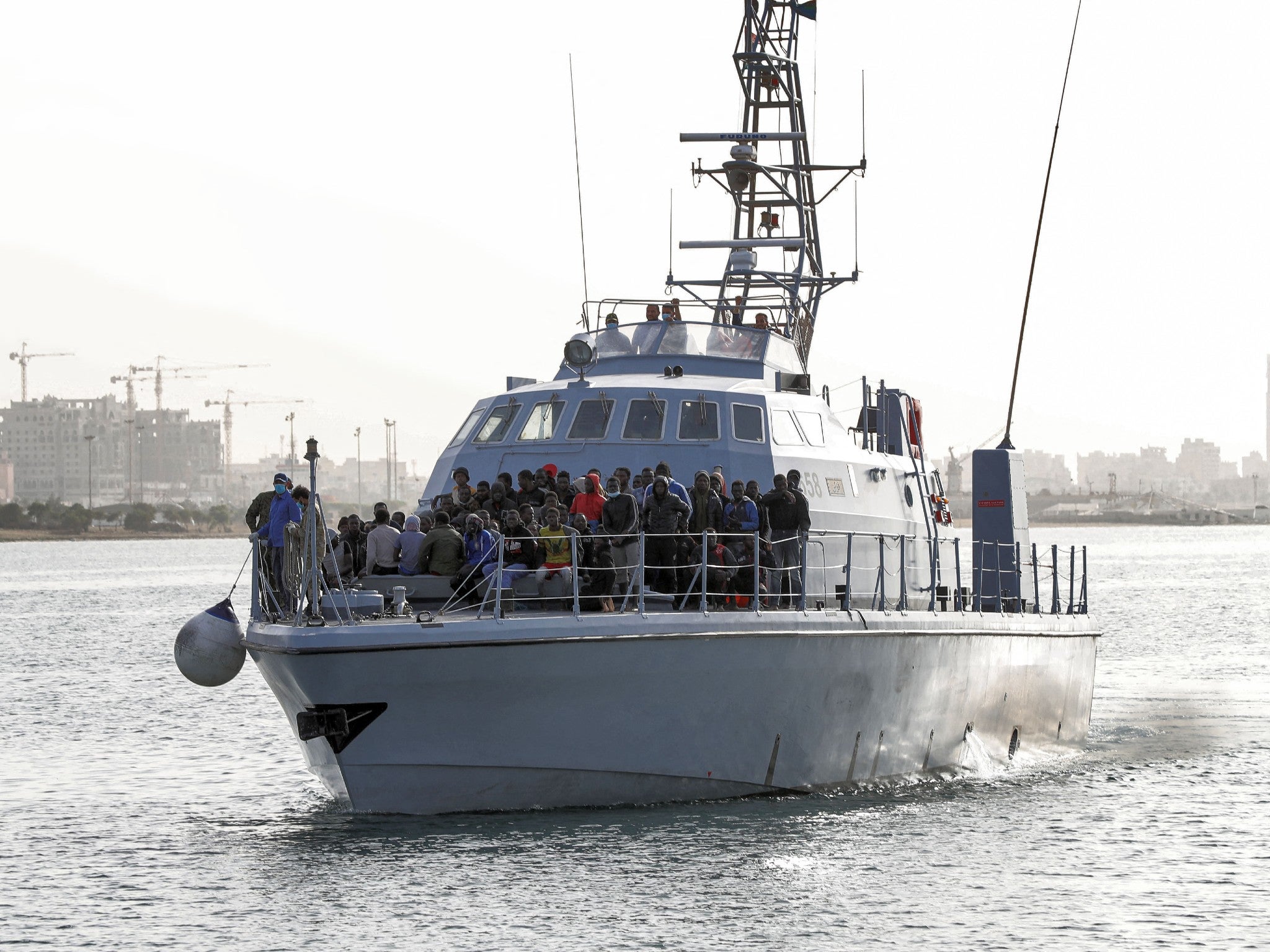Europe is failing refugees and migrants. We have become too numb to the graveyard in the Mediterranean
Until Libya can provide proper safeguards, the continent as a whole should resume the search and rescue duties in international waters


The rescue ship received three different distress calls from migrants and refugees in sinking dinghies off the Libyan coast at the same time.
All of them were at least 10 hours from their position.
What do you do when you can’t be in three places at the same time, and every precious second counts?
This was the nightmare that Sos Mediterranee, a European maritime and humanitarian organisation, faced two weeks ago. It is one of a handful of NGOs that are patrolling international waters off the coast of Libya.
Over a 48-hour period, they received information that hundreds of vulnerable men, women and children who were trying to take the sea route to Europe needed rescuing.
When SOS Mediterranée got to the coordinates of one of the dinghies in distress, they found the remains of the boat deflated on the water and sadly a number of dead bodies – including one hunched over a life jacket. All 130 of those on board are believed to have drowned.
According to the International Organisation for Migration (IOM), it was the single largest shipwreck in the central Mediterranean Sea this year. The deadly incident meant 500 migrants and refugees have drowned in total in 2021 which is three times the total death toll of the same period last year.
Aid group Alarm Phone, a hotline for boats in distress at sea, said in a tweet that it had been in contact with the dinghy for about 10 hours just before the horrific incident and “repeatedly relayed its GPS position and the dire situation on board to European and Libyan authorities”. Despite this, the group said, only non-state actors like SOS Mediterranée actively searched for the boat in distress at sea.
Thousands of migrants and refugees each year make the dangerous trip through Libya to board rickety boats and dinghies in the hope of seeking asylum in Europe. But since the EU-led search and rescue operations off the coast of Libya were terminated in 2018, there has been no proper state-led response to the crisis in the central Mediterranean.
There is now Operation Themis, which replaced what came previously. However, while the programme says that search and rescue is a “crucial” component – the operation makes clear that Operation Themis has an “enhanced law enforcement focus”.
And so, right now, the burden of care is on NGO boats, merchant ships who happen to be passing and the Libyan coastguard, who have been accused by rights groups of being abusive towards vulnerable migrants and refugees.
The Libyan coastguard, that receives funds from the EU, also intercepts boats and takes them back to war-ravaged Libya, where migrants and refugees are held in appallingly squalid detention centres, or – if they are free – are at risk of kidnap, enslavement, torture for ransom, and death.
The horrific conditions in Libya, a country long in the grips of fiefdoms of militias, jihadists and smugglers, are well known. Like many reporters I have spent seven years documenting the appalling violence migrants and refugees face both inside and outside of detention centres in Libya – as well as the terrifying rescues at sea. And so it feels like banging your head against a wall, when Europe only doubles down on closing its borders.
Médecins Sans Frontières (MSF), which also runs rescue ships in the Mediterranean, claimed in October that European governments were even preventing NGO rescue ships from saving lives by detaining their boats.
In September Sea-Watch 4, the search and rescue vessel operated by MSF and Sea-Watch, was detained by Italian authorities in the port of Palermo, Sicily. At the time MSF said it was the fifth NGO search and rescue ship to have been held in five months.
Since 2018, Europe’s response has been – in my view – to turn a blind eye to the crisis. It has focused on empowering the Libyan coast to intercept dinghies and take them back to Libya which, for anyone who has spent any time in the country, will know is inhumane madness.
The conditions in Libya only get worse every year. In 2020, there was a full-blown conflict over the capital Tripoli. Although that has ended and there is a recognised unity government, it has little power to stop the powerful and violent traffickers.
The last few years have shown that no matter how many people are sent back to Libya, in many cases to die, or who are left to drown at sea, the world’s most desperate still try to seek a better life in Europe.
And so these inhuman “deterrents” have only seen more men, women and children die.
Until Libyan authorities are able to guarantee the safety of migrants and refugees in Libya, until they can end arbitrary detention and improve conditions in the jails where migrants are held, Europe should resume the search and rescue duties in international waters off the coast of Libya.
European countries should also establish a proper functioning regional disembarkation programme to take people to safe ports and rather than just automatically detaining rescued people, arrange for their swift relocation to another European country so they can be safely legally processed.
The world has become too numb to the graveyard that is the Mediterranean.
This must end now before more people needlessly lose their lives.
Join our commenting forum
Join thought-provoking conversations, follow other Independent readers and see their replies
Comments
Bookmark popover
Removed from bookmarks